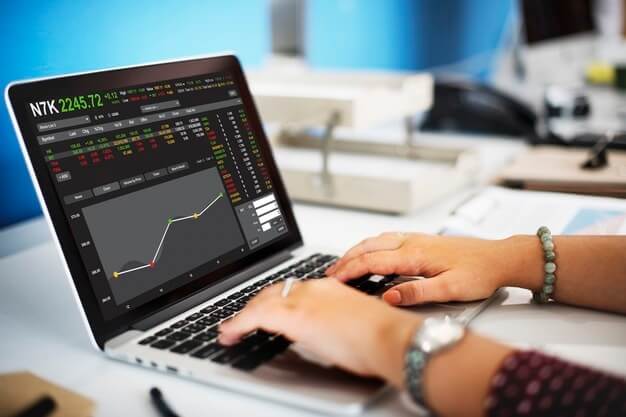
All cryptocurrency wallets operate by way of the usage of each public and private keys. Some, like Coinbase, do offer separate standalone non-custodial pockets apps. The familiarity of in style exchanges may play a consider deciding the right kind of wallet for you if you’re already comfy using one change or one other. Unlike custodial wallets, non-custodial wallets aren’t usually notably user-friendly. Beginners might have a steeper studying curve and require a while before getting to know the method to use these wallets. While it might be an easier possibility, users need to notice that they are uncovered to the chance of exploitation or hacks that the pockets provider might endure.
Save taxes with Clear by investing in tax saving mutual funds (ELSS) online. Our specialists counsel the best funds and you will get excessive returns by investing immediately or via SIP. The urge to participate within the newly emerging crypto landscape is undeniable in any circumstance. You can obtain cryptocurrency by way of totally different methods, similar to buying crypto by utilizing an change.
Understanding Crypto Keys
A non-custodial pockets, or self-custody wallet, is where the crypto owner is totally answerable for managing their very own funds. The person has full control of their crypto holdings, manages their own private key, and handles transactions themselves. To transact cryptocurrency or NFTs (non-fungible tokens) from this wallet, you should log in to your user account and provide the tackle enter (public key of the recipient’s wallet). The pockets issuer is responsible for sending the involved non-public key to that wallet tackle, thereby completing transactions.
- The custodian of the private key, on this case a crypto exchange, is tasked with “signing” transactions using the non-public key to ensure they’re completed appropriately.
- In instances of political unrest, which means governments have extra power to restrict movement of funds in custodial wallets.
- However, the supply of acquiring a crypto asset does not matter so long as you may have a pockets for storing your crypto property safely.
- Cryptopedia does not guarantee the reliability of the Site content material and shall not be held responsible for any errors, omissions, or inaccuracies.
- They are seen to everyone if your tackle is energetic (e.g., by way of block explorers).
Everywhere you look on the earth of tech right now, the time period ‘crypto’ garners headlines in virtually any dialogue. Industry experts are hailing crypto as the subsequent huge thing within the domain of finance and know-how generally. While cryptocurrency popularity continues to soar larger, individuals and institutions are eager to buy cryptocurrencies.
So, the consumer ought to refrain from storing their recovery phrase on-line or sharing it with other individuals. If you favor to keep things simple and don’t thoughts a third celebration between you and your crypto, custodial wallet supplier options are plentiful. In reality, most firms providing custodial wallet services are well-known and established crypto exchanges like Coinbase, Kraken and Crypto.com. A custodial wallet service (like Coinbase or Kraken) holds on to the private key, so it is liable for safeguarding a user’s funds.
Safe
Crypto wallets are essential for storing digital property, with custodial wallets entrusting private keys to a government while non-custodial wallets maintain keys with homeowners. Major differences embody custody, transaction reflections, anonymity provisions, withdrawal limits, and account restoration methods. Pros of custodial wallets include zero fees, investment alternatives, and backup options, whereas cons involve less management and data breach dangers. Non-custodial wallets present full asset control, enhanced security, and fast transactions, however drawbacks embody complex user interfaces and added accountability in asset management. Custodial wallets make recovery of funds so easy that you just may not want to take a look at non-custodial wallets. In the case of non-custodial crypto wallets, you must take the duty of safeguarding your restoration phrase and private keys.
Let’s transfer one step ahead and perceive the variations between the 2 i.e. There are a quantity of various kinds of crypto wallets to select from, but the two main varieties could be broken out as custodial wallets and non-custodial wallets. There are pros and cons to keeping your crypto property in several sorts of wallets, so it’s up to you to determine on the right mix of comfort and safety on your funds. This Learn article will look at what crypto wallets are and what the difference is between non-custodial and custodial wallets.
Custodial wallets are usually most well-liked by newcomers and people who worth the set-and-forget nature of managing their crypto via an trade or different centralized wallet supplier. Non-custodial wallets are for those users who want to exert extra control over who has entry to their funds. There are professionals and cons for each types of wallets, so weigh your comfort stage with the features that matter most to you earlier than deciding. You’ll additionally need to contemplate the perks each wallet presents, like crypto debit or credit cards, staking opportunities, cashback rewards and the variety of cash supported. The first entry among discussions on difference between custodial and non-custodial wallets would clearly bring the limelight on custodial wallets.
A non-custodial wallet (also generally known as a self-custody wallet) however, gives users full control over their non-public key, and with it sole responsibility for protecting their holdings. Unlike custodial wallets, customers can simply entry their saved funds in any scenario and without KYC, as there is not a need for a confirmation discover from any third get together. Instant withdrawals can be found in non-custodial wallets, whereas some CEXs require a certain time to course of transactions. Outsourcing your pockets custody means that you are gifting away entry to your own set of private keys. In quick, the consumer isn’t liable for defending their private key to their pockets, as they already have placed their trust in a business into keeping their belongings protected.
Most of the time suppliers or exchanges can merely reset your password with a quantity of safety questions. If a non-custodial pockets holder loses their non-public key, their funds might be unrecoverable. Furthermore, sure governments have completely banned using custodial wallets for completing transactions for users in sure areas. In instances of political unrest, because of this governments have extra power to restrict motion of funds in custodial wallets.
Non-custodial Wallets
Now, you’ll come throughout two distinct choices, similar to custodial and non-custodial wallets, in your search for a dependable crypto pockets. Let us discover the answers to those questions in detailed comparison between the custodial and non-custodial variants of crypto wallets within the following dialogue. Custodial wallets are practically at all times web-based, and are often offered by centralized crypto exchanges like Coinbase. Most exchanges’ interfaces are designed so users by no means even have to instantly work together with their wallets. This user-friendliness means custodial wallets are usually most popular by newcomers, to whom the convenience issue of not having to handle their personal key themselves is a big benefit. While hardware wallets are a standalone bodily system used to store digital property, software program wallets are put in on a user’s device (desktop or mobile).
Instead, users need to belief that the third-party custodian will secure their crypto for them. While access to funds is certainly an important point of comparability between custodial and non-custodial wallets, it’s also essential to replicate on the chances for restoration of funds. Majority of crypto exchanges have custodial wallets connected directly to the consumer accounts on the platform. If customers forget their login credentials, then they can rely on the wallet supplier for recovering their credentials. All you have to do is enter the extra information supplied at the time of creating the account.

However, in style custodial wallets similar to Binance and Coinbase have efficiently earned the belief of crypto users. If you don’t wish to take the difficulty of safeguarding your non-public keys from unauthorized entry, custodial wallets might be the best decide for you. On the opposite, skilled merchants with technical know-how of backing up and restoring their wallets could choose non-custodial wallets. Deciding between a non-custodial and custodial crypto wallet type is largely a matter of deciding which features in a wallet are most important to you.
Conclusion — Custodial Or Non-custodial Wallet: Which To Decide On
But a crypto pockets isn’t like a daily wallet by which you’d hold your credit cards and money. It’s a standard misconception that crypto wallets retailer or comprise a user’s cryptocurrency holdings. In truth, they are simply the tool through which a user can access their funds on the blockchain and provoke crypto transactions. We’ll break down the variations between these two types of crypto wallets and which might be best for you. Custodial wallets also give users peace of mind that a misplaced or forgotten password doesn’t mean they lose access to their funds.
They do, however, charge greater charges and solely provide publicity to a fraction of the cryptocurrencies and buying and selling pairs provided on exchanges. If you do not want to trust a centralised enterprise to manage your non-public keys, non-custodial wallets could be the best option. All the personal custodial vs non custodial wallet keys and delicate information remains restricted to you in this kind of wallet. In the case of non-custodial wallets, customers have to maneuver their assets manually between different exchanges. In addition, some non-custodial wallets don’t offer the facility for entry to an internet connection.
Access to a personal key offers a person the flexibility to ship crypto belongings from a selected public tackle, making private key management of utmost significance. There isn’t any limit on the withdrawal of property in a non-custodial pockets, letting you handle your cryptocurrency and NFTs unrestrictedly. The main distinction between custodial and non-custodial wallets lies in managing private keys. Understanding these differences is paramount when choosing the right wallet. After a thorough overview of custodial and non-custodial wallets, you should be eager to establish the variations between them.
Some favor a custodial change account, while others choose non-custodial wallets, and some find yourself using a mix of the 2. You’ll also have to decide if you’d like a scorching or chilly pockets, and whether to unfold your cryptocurrency holdings between varied crypto wallets. Regardless of your choice, make sure to all the time follow greatest safety practices. These newer choices are gaining recognition, especially with institutional traders looking for more investment exposure to cryptocurrency and tokens. They offer an option to invest in cryptocurrency that doesn’t require managing keys or transacting on the blockchain.
Sensible Contracts Vs Traditional Contracts: Key Variations
For example, you should purchase Bitcoin through a centralized change similar to Binance. However, the source of obtaining a crypto asset doesn’t matter so lengthy as you have a wallet for storing your crypto assets safely. The pockets generates a unique tackle, which serves as an identifier for finding your assets on the blockchain. Some businesses that supply these custodial pockets services additionally provide a backup choice.




